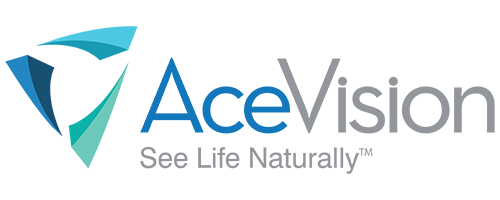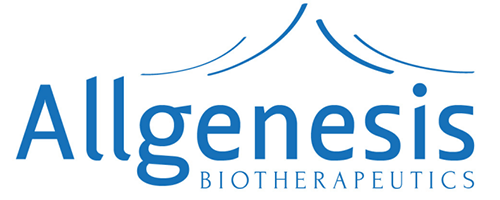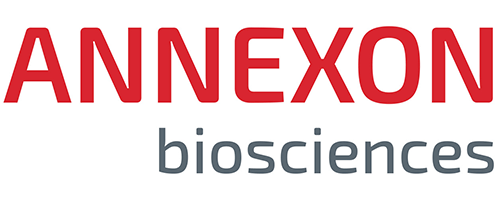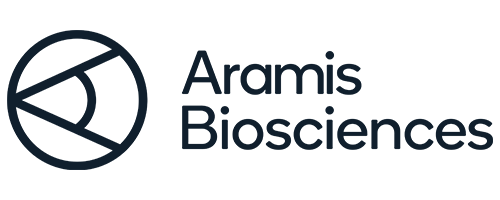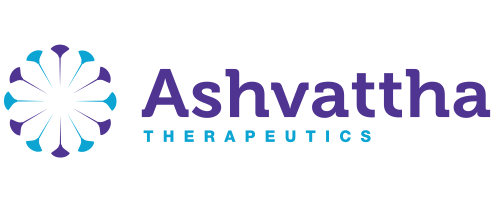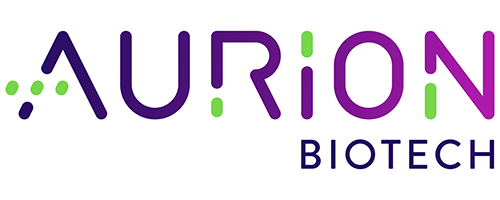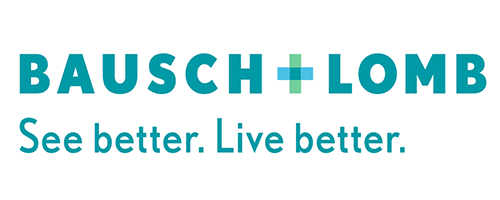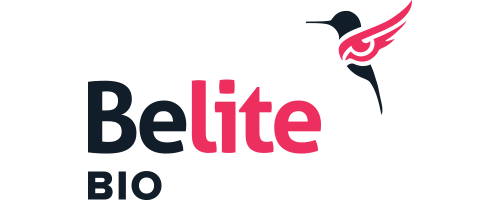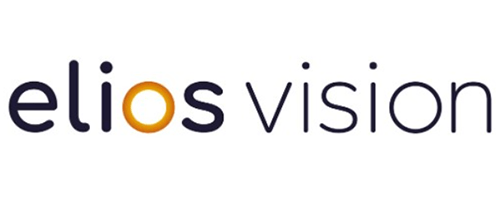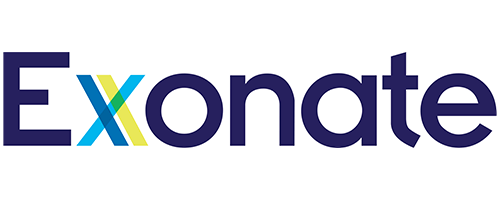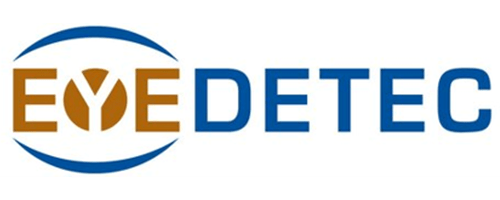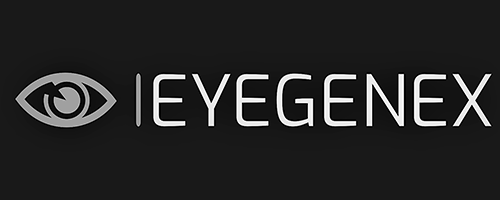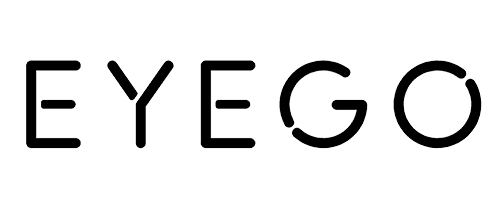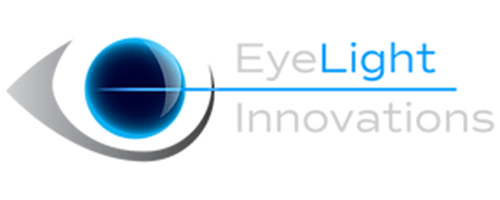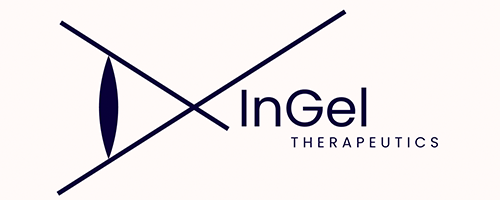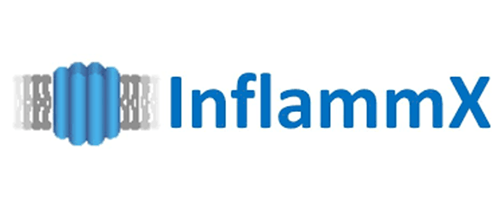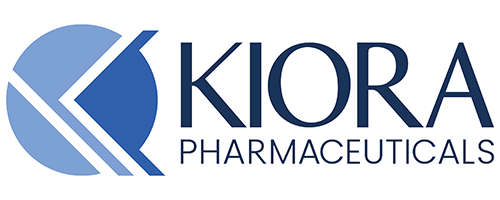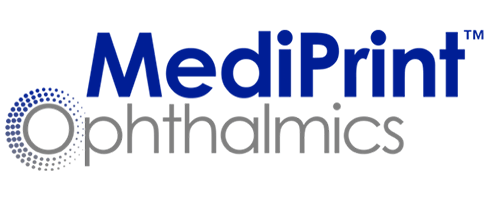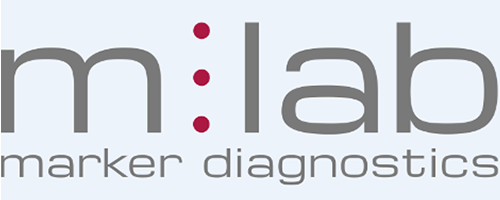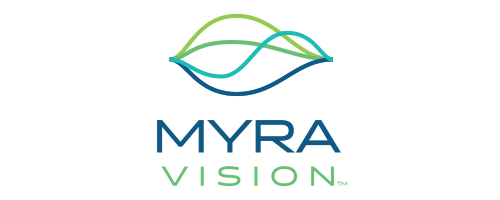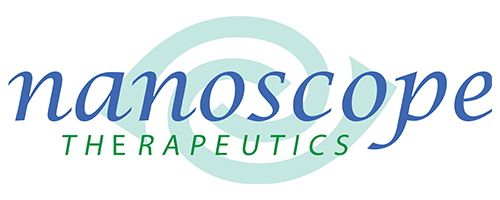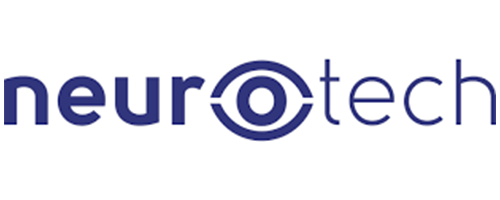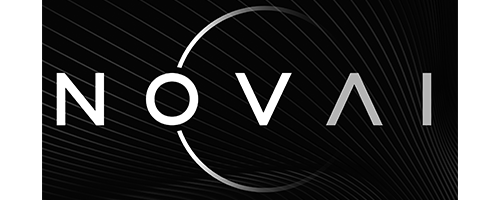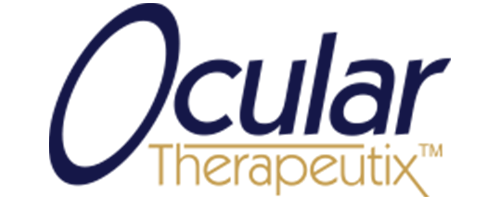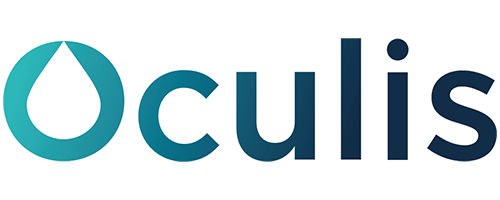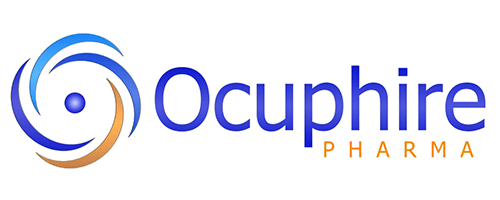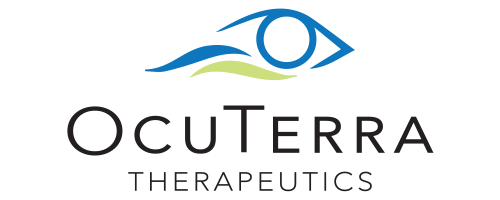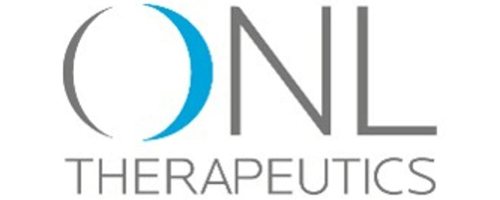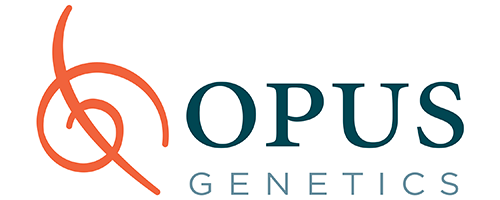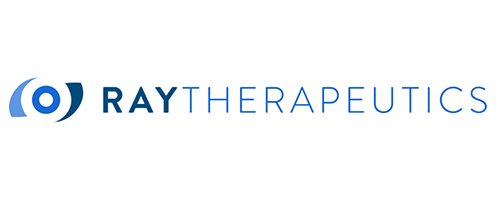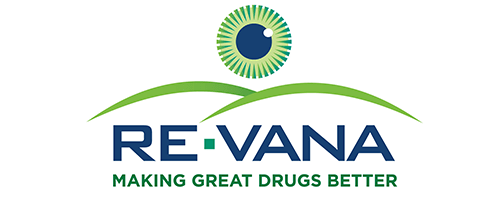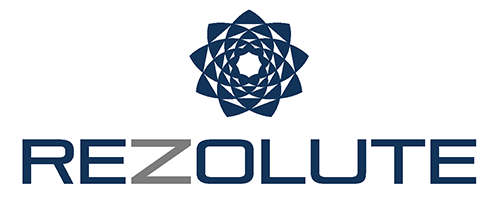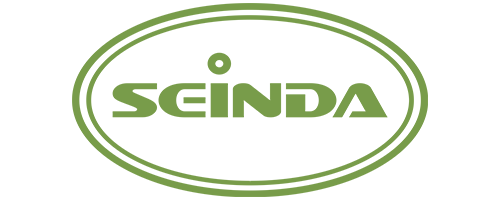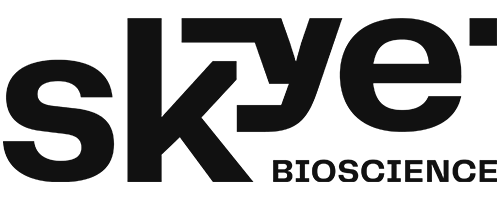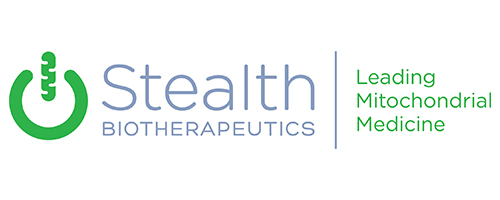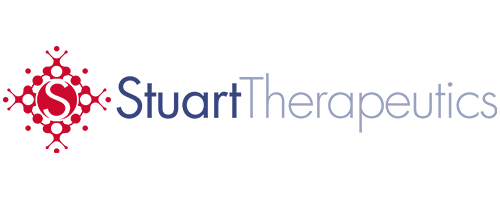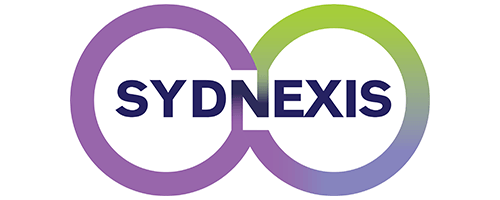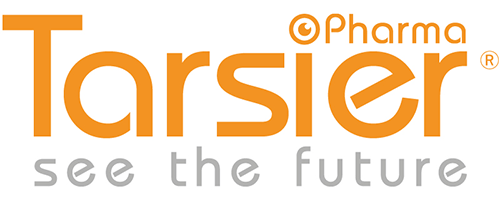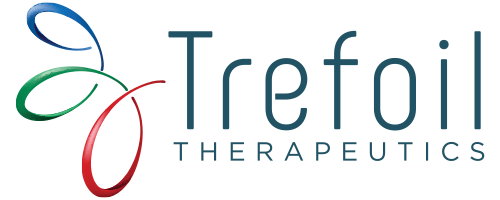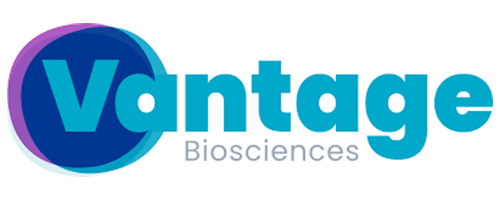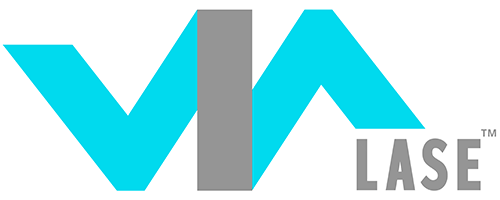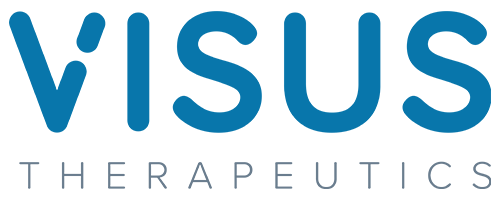
OIS XIII PRESENTING COMPANIES
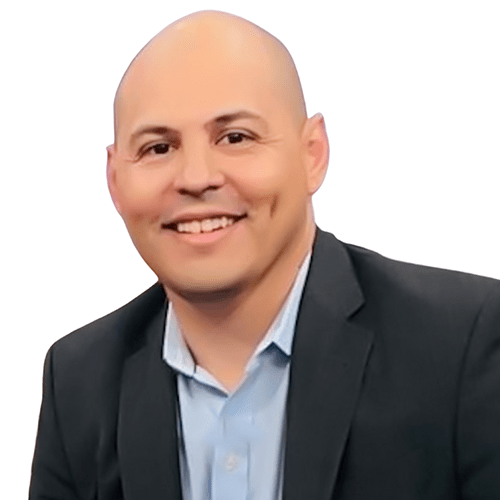
Alex Lopez, Chief Commercial Officer - Ace Vision Group
Ace Vision Group, Inc, (“AVG” or “the Company”) is an emerging ophthalmic laser device company focused on bringing innovative touchless Eye Laser Therapy to patients suffering from age-related vision loss.
The Company is focused on the development and commercialization of its first product, the VisioLite® Ophthalmic Laser, a touchless therapeutic device.
The initial use for this device is Laser Scleral Microporation® (LSM), an innovative, clinical stage, minimally invasive rejuvenation therapy for the treatment of presbyopia, and potentially other eye diseases including glaucoma.

Rahul Janardhanan, Product Development Engineer - AesculaTech
AesculaTech is a medical device company that specializes in the development of smart materials. Founded in 2016, the company is led by Dr. Niki Bayat, one of MIT's 35 under 35 innovators. Her vision is the use of patient-responsive polymers to achieve truly personalized medicine. The company's cornerstone product, Humidifeye, is a novel smart gel to treat dry eye disease delivered by a one of a kind micro-volume autoinjector. Pilot study results indicate remarkable patient recovery and market research shows widespread physician interest. This platform technology is only the beginning.

Sunil Patel, MD, PhD, Chief Medical Officer - Allgenesis Biotherapeutics
Allgenesis, established in 2014, is a clinical-stage, biopharmaceutical company that focuses on the development of novel therapies for the treatment of unmet medical needs in diseases of the front and back of the eye. The company has two ongoing projects:
- Retina: AG-73305 is a novel, first-in-class, bi-specific Fc-fusion protein (anti-VEGF+anti-Integrin) designed for the treatment of diabetic macular edema (DME) and neovascular age-related macular degeneration (nAMD). It is currently in a Phase 2a, first-in-human study evaluating the safety, tolerability, and efficacy of a single intravitreal injection in 22 DME patients. Preliminary data show improvements in best-corrected visual acuity and central subfield thickness, with durability lasting from 3-6+ months after a single injection.
- Dry Eye Disease: AG-80308 is a novel small molecule with a unique mechanism of action being developed for treating Dry Eye Disease (DED). It works through the body’s natural resolution pathway to eliminate an inflammatory response. A Phase 1b trial in DED patients was recently completed where AG-80308 showed improvements in multiple signs and symptoms in 84 patients dosed BID for 3 months. A Phase 2a study is planned for 4Q24. AG-80308 was in-licensed from Allergan in May of 2020.
Allgenesis is looking for potential out-licensing or co-development partners for AG-73305 and AG-80308. We are looking to raise US$50mn (Series C - two traunches US$30mn/US$20mn) to advance current programs, and support our IPO plans in the U.S.

Douglas Love, President & CEO - Annexon Biosciences
Annexon is a clinical-stage biopharmaceutical company developing a new class of complement-based medicines for patients with classical complement-mediated autoimmune, neurodegenerative and ophthalmic disorders.
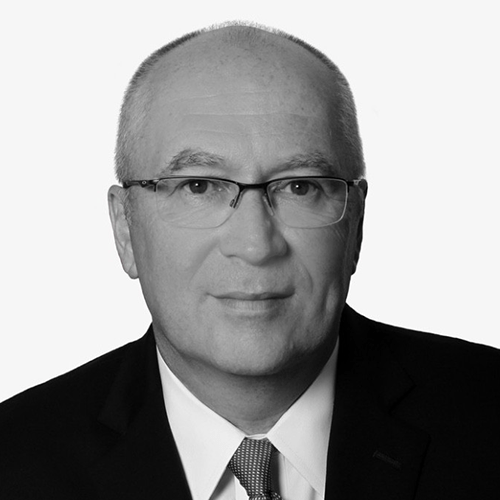
David Tierney, MD, CEO - Aramis Biosciences
Aramis Biosciences is a clinical-stage immuno-ophthalmology biopharmaceutical company committed to the development of disease-modifying therapy for ocular surface disease. Founded by leading experts in the fields of corneal disorders, ocular inflammation and immunology from The Schepens Eye Research Institute of Mass Eye and Ear and Department of Ophthalmology at Harvard Medical School, and with support from Safar Partners, Dompé farmaceutici S.p.A., and a global leader in ophthalmic pharmaceuticals, Aramis Biosciences is advancing A197, a novel, first-in-class, topical IL-17A antagonist, in the clinic for the treatment of dry eye disease. For more about Aramis Biosciences, visit https://www.aramisbio.com

Jeffrey Cleland, PhD, President & CEO - Ashvattha Therapeutics
Ashvattha Therapeutics is advancing a new class of clinical-stage nanomedicine therapeutics that transverse tissue barriers to selectively target activated cells only in regions of inflammation. Our targeted nanomedicine approach seeks to redefine precision medicine, empowering a new standard of care across ophthalmology, neurology, and inflammation. For more information, visit: www.avttx.com

Greg Kunst, CEO - Aurion Biotech
Aurion Biotech is a clinical-stage biotech company, whose mission is to restore vision to millions of patients with life-changing regenerative therapies. Aurion Biotech is the recipient of the prestigious Prix Galien award for best start-up in biotech. The Company’s first candidate is for the treatment of corneal edema secondary to corneal endothelial disease, and is the first off-the-shelf, clinically validated cell therapy for corneal care, having received regulatory approval in Japan. The Company is preparing for clinical trials in the U.S. Privately held, Aurion Biotech is backed by leading investors that include Deerfield, Alcon, Petrichor, Flying L Partners, Falcon Vision / KKR, and Visionary Ventures. To learn more about Aurion Biotech, visit www.aurionbiotech.com

Andrew Stewart, President, Global Pharmaceuticals And International Consumer - Bausch + Lomb
Bausch + Lomb is dedicated to protecting and enhancing the gift of sight for millions of people around the world – from the moment of birth through every phase of life. Its comprehensive portfolio of more than 400 products includes contact lenses, lens care products, eye care products, ophthalmic pharmaceuticals, over-the-counter products and ophthalmic surgical devices and instruments. Founded in 1853, Bausch + Lomb has a significant global research and development, manufacturing and commercial footprint with more than 12,000 employees and a presence in nearly 100 countries. Bausch + Lomb is headquartered in Vaughan, Ontario with corporate offices in Bridgewater, New Jersey. For more information, visit www.bausch.com and connect with us on Twitter, LinkedIn, Facebook and Instagram.
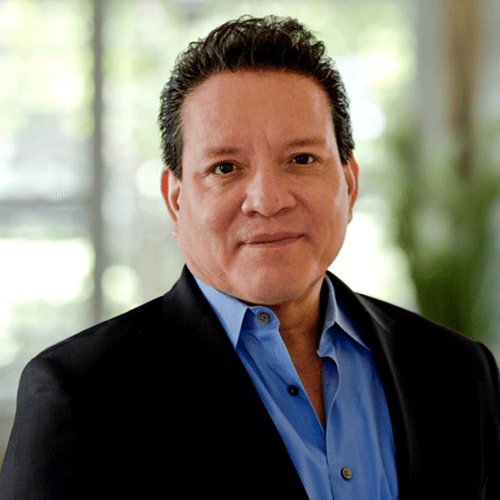
Nathan Mata, CSO - Belite Bio
Belite Bio is a clinical-stage biopharmaceutical drug development company focused on advancing novel therapeutics targeting retinal degenerative eye diseases which have significant unmet medical needs, such as STGD1 (global phase 3 study ongoing, fully enrolled) and GA in advanced Dry AMD (global phase 3 study ongoing, recruiting).
Lead pipeline, Tinlarebant, is a novel oral therapy which is intended to reduce the accumulation of toxins in the eye that cause STGD1 and contribute to GA, or advanced Dry AMD. These toxins are by-products of the visual cycle, which is dependent on the supply of vitamin A (retinol) to the eye. Tinlarebant works by reducing and maintaining levels of serum retinol binding protein 4 (RBP4), the sole carrier protein for retinol transport from the liver to the eye. By modulating the amount of retinol entering the eye, Tinlarebant reduces the formation of these toxins.
Tinlarebant has been granted Fast Track Designation and Rare Pediatric Disease Designation in the U.S., and Orphan Drug Designation in both the U.S. and Europe for STGD1

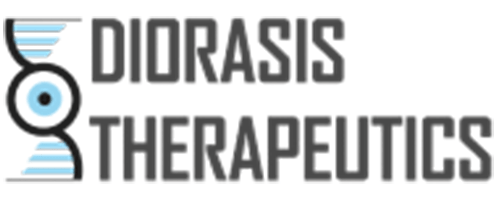
Remis Bistras, PhD, MBA, CEO - Diorasis Therapeutics
Diorasis Therapeutics is an ophthalmic late-stage pre-clinical company focusing on first-in-class disease-modifying gene-agnostic gene therapy to normalize outflow facility in the trabecular meshwork and decrease IOP in open-angle glaucoma patients.
Despite multiple treatment options, including generic drops, it is shown that ~70% of patients will fail 1st agent; of those, 70% fail 2nd agent treatment; >100K patients undergo glaucoma surgery annually. In the US, ~120K patients are blind because of glaucoma.
Our technology comes from our co-founder John Danias’, MD, PhD lab; we have licensed patents from SUNY and Mt. Sinai.
Our previous work has shown that upregulation of our engineered variant tissue Plasminogen Activator (tPA) results in upregulation of matrix metalloproteinase 9 (MMP9) and other MMPs expression, which remodel the excessive extracellular matrix that clogs the trabecular meshwork and increase outflow facility, resulting in lower IOP. Furthermore, in multiple animal models of glaucoma, we have shown that modified tPA can treat elevated IOP independent of any genetic defects causing OAG. Our gene therapy for glaucoma uses self-complementary AAV, which efficiently transduces human trabecular meshwork cells and results in the permanent production of modified tPA.

Sahar Bedrood, MD - Elios Vision
The ELIOS procedure is an innovative glaucoma treatment that can be performed at the same time as cataract surgery. The procedure preserves the trabecular meshwork, is broadly adoptable by surgeons, and does not require an implant.
By using excimer laser light technology to create microscopic openings in the trabecular meshwork, ELIOS is designed to facilitate outflow of aqueous. ELIOS has been CE-marked in Europe and is currently undergoing investigational trials in the United States.
Cataract surgery is the most routinely performed surgery in the world with approximately 32 million procedures expected to be performed this year.1 Up to 20% of patients who need cataract surgery also have glaucoma or ocular hypertension.2 However, even though cataract surgery provides an optimal window for glaucoma treatment, it has not become a routine consideration for cataract patients.
At ELIOS, we see an opportunity to address one of the most common causes of blindness in the world during the most commonly performed surgical procedure in the world. Our goal is to make combining cataract and glaucoma treatment the new standard of care.
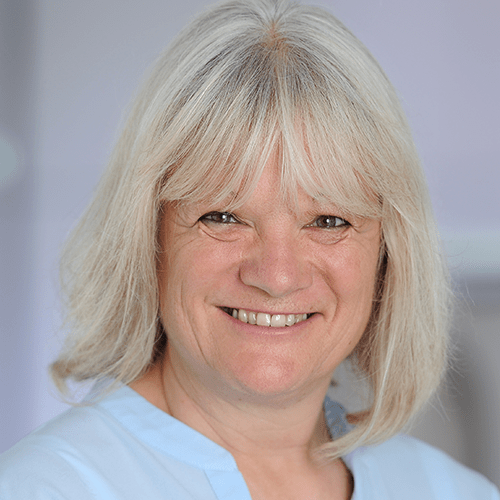
Catherine Beech, MB, ChB, OBE, CEO - Exonate
Exonate is a clinical-stage biopharmaceutical company headquartered in Cambridge, UK, developing proprietary small molecule splicing kinase inhibitors to treat neovascular retinal diseases. The Company has built expertise in alternative mRNA splicing modulators resulting in the discovery and development of a topical (eye drop) small molecule compound for the treatment of ophthalmology indications. The development programme has the potential to be a paradigm shift away from the treatment of retinal diseases by intravitreal injections.
The lead programme in ophthalmology (EXN407) has successfully completed a Phase Ib clinical trial in patients with mild Diabetic Macular Edema (DME). The trial met all its formal endpoints, demonstrating that EXN407 is safe, and well tolerated while being rapidly eliminated systemically. The compound also showed clinically relevant biological activity signals in retinal tissues, warranting further development. EXN407 is therefore well positioned to offer significant benefits to DME patients when compared with intravitreal injections.
On the back of the EXN407 trial results, Exonate is now seeking both funding to further develop EXN407 in a Phase II study and collaboration opportunities with large pharma with ophthalmology experience. The proposed phase II study is designed to show efficacy in patients who have more severe DME than those in the phase I clinical trial and to further define the dosing regimen.
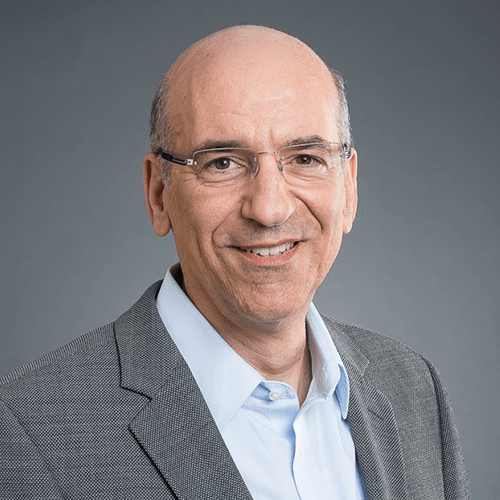
Barry Linder, MD, President & CEO - Eyedetec
Dry Eye Disease (DED) significantly impacts quality of life and vision, and the incidence is growing 9.2% annually. The aging population, contact lens use, corneal surgery, and time spent on digital screens all contribute to the market growth. There is currently no cure, and available treatments are often painful, costly, and create significant anxiety for the patient. Eyedetec Medical understands the DED market through its commercially available, Class I product (EyeGiene®) for treatment of mild DED.
Eyedetec will introduce its 2nd product in 2023. The Eye Lipid Mobilizer™ (ELM™) is a novel device that treats moderate to severe DED. The attractive pricing and business model includes fitting the device in the doctor’s office for an initial treatment, and then therapy is continued by patients at home. The scalability and flexibility of this approach enables doctors to meet growing patient demand while generating meaningful new revenue. The patented mechanisms include uniquely integrated heat, external mechanical neuromodulation, and precise vibratory mechanical stimulation resulting in shear thinning of essential tear film oils. The product is proven to be clinically effective, affordable, and convenient. This next-generation therapy is easy to use and is significantly less expensive than alternatives.

Prasad Sunkara, PhD, CEO - Eyegenex
Eyegenex,Inc is a US based biotech company focusing on the development of gene and peptide therapies for Glaucoma. Glaucoma is a progressive eye disease that do not have a treatment except for prevention by lowering intra ocular pressure(IOP) that causes apoptosis of retinal ganglion cells resulting in glaucoma.
The incidence of glaucoma in US is around 3 Million and 80 Million worldwide.
Eyegenex’s gene therapy product will be initially evaluated for the treatment of patients with normal tension glaucoma(NTG)that are refractive to IOP lowering drugs and surgery. About 400,000 patients in US and 12 Million around the world (with high incidence in Asia with high prevalence in Japan, China and India) suffer from NTG.
The company has licensed patents from University of Colorado based on extensive animal work conducted by Prof. Ram Nagaraj. His extensive studies over a period of 10 years have resulted in significant prevention of retinal ganglion cell apoptosis as a result of inducing increased IOP in animal models. His recent data suggests after one year post IOP increase and treatment, a near complete protection of vision after a single intravitreal injection of gene therapy while the vehicle control animals were all most blind. These data strongly suggest the potential of this therapy for the treatment of glaucoma patients.
We are also developing a second product, a peptide therapy for the treatment of Acute angle glaucoma(AAG), a disease that needs immediate intervention by surgery or IOP lowering agents reduce the eye pressure. The incidence of this disease is about 200,000 in US and >3 Million worldwide.The peptide would be administered by intravitreal injection after lowering the eye pressure to prevent any further damage to the retinal ganglion cells and optic nerve that could lead to glaucoma.
Currently, Eyegenex is evaluating the gene therapy product in an African green monkey model of glaucoma. Based on successful completion, the company plans to file for an IND. After IND approval the company will conduct phase 1 and phase2 studies. We believe a positive phase 1 outcome should result in a strategic investment followed by an exit.

Henrik Nagel, CEO - EYE-Go A/S
EYE-GO A/S is a pre-revenue Danish MedTech start-up established 2015 based on an idea by two designers wanting to develop eye-care technologies that improve the quality of life of people around the world suffering from severe and chronic eye conditions. EYE-GO is developing a patented micro-dosing drug delivery system, MistGo® for topical eye care treatment.
MistGo® addresses the problem that only a fraction of eye patients achieves the full health outcome of available treatment due to imperfections with eye drop bottles. Studies show that half of those in e.g., glaucoma treatment stop taking the medicine after 6 months, and of the patients continuing the treatment only 25% successfully instills the correct number of drops in the eye without touching the eye risking contamination. Consequently, the disease deteriorates leaving patients with significantly lower quality of life; pharma companies miss out on business potential and society has unnecessarily high health care spending.
MistGo® mitigates all these barriers known from eye drop bottles, making it simple and comfortable to self-administer drugs correctly (also preservative-free) helping patients adhere to treatments and avoiding known side effects from spilled drops and overmedication from the size of eye drops.
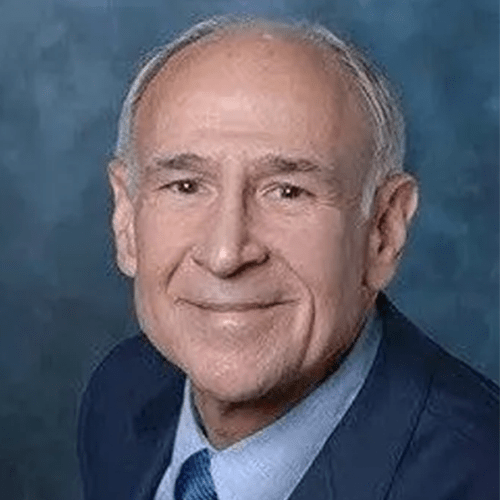
Michael Berlin, MD, Founder, President & CMO - EyeLight Innovations
ELT technology used by all companies in the space was created and developed by EyeLight Innovation's founder Dr. Michael Berlin. This technology has been approved for use in Europe under CE mark for well over 10 years. With validated safety and efficacy in over 5,000 patients in European studies, ELT was still not readily adopted in the United States due to its implementation difficulty. We created a guidance system technology which solves this problem, making it possible for all ophthalmic surgeons to perform this MIGS procedure accurately. E&O MIGS not only makes ELT widely adoptable, but also more accurate by implementing data in real-time.

Jean-Pierre Hubschman, MD, Founder & CEO - Horizon Surgical Systems
At Horizon, we are revolutionizing microsurgery through advancements in robotics, medical imaging, and artificial intelligence. Our mission is to enable surgeons to extend beyond the limits of human precision.

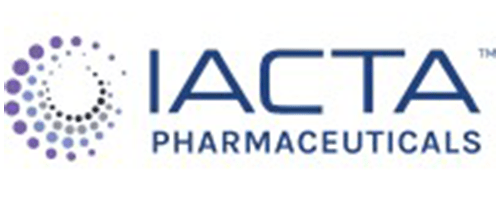
Damon Burrows, Co-Founder & CEO - IACTA
IACTA Pharmaceuticals is an R&D focused company that is creating innovative treatment-opportunities in the ever-growing industry of ophthalmology and eye care.
Using our wide range of expertise, we are able to identify new technologies and transform them into beneficial treatments that can help many patients worldwide.

Max Ostermeier, CEO - Implandata Ophthalmic Products
Implandata is an ophthalmic health tech company, which will improve the life of millions of glaucoma patients and help to preserve their eyesight and quality of life with its proprietary breakthrough EYEMATE system for remote patient management and precision medicine in glaucoma. We are introducing disease home monitoring and remote patient care. The VC funded company is based in Germany and the USA, has currently 12 employees and is endorsed by the most renowned glaucoma clinicians and researchers in the world.
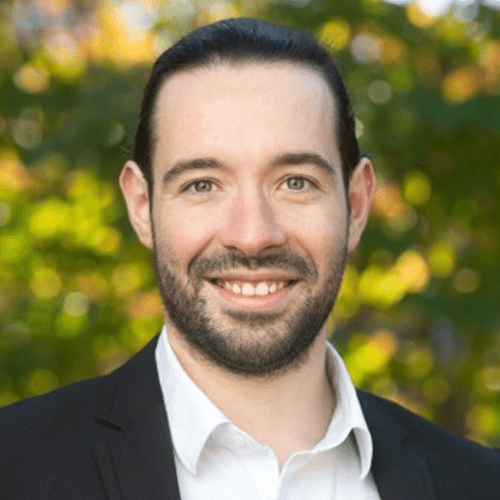
Pierre Dromel, PhD, Founder & CEO - InGel Therapeutics
InGel is a preclinical biotech company with the mission to bring back light to patients whose world has gone dark. Having spun out of Professor Michael Young’s lab at Harvard in 2022, InGel combines tissue engineering and regenerative medicine to target retinal degeneration. Its lead program, IGT001, is a mutation-agnostic approach to Retinitis Pigmentosa. Leveraging the key protein factors secreted by its proprietary cell line, IGT001has generated encouraging data in restore visual functions across multiple preclinical models. The company is currently raising its seed round with the goal to take IGT001 to the clinic, by the end of 2025.

Brian Levy, OD, CEO - InflammX
InflammX Therapeutics is a clinical-stage company with highly differentiated, first-in-class products based upon a novel mechanism called “Connexin43 (Cx43) Hemichannel Modulation.” This mechanism leads to a differentiated treatment paradigm which modifies the dysregulated (NLRP3) inflammasome pathway of inflammation and its downstream pathology. InflammX is developing Xiflam™, a small molecule for once a day oral administration. Xiflam™ has been shown to inhibit the pathologically open Cx43 hemichannel and modulate activation and dysregulation of the inflammasome resulting in perpetuated autoinflammation. The initial indications for Xiflam™ are diseases in ophthalmology/nephrology with significant unmet need. Specifically these are diabetic retinopathy (DR), characterized by diabetic macular edema (DME), and diabetic nephropathy (DN) characterized by chronic kidney disease (CKD) and the intermediate (early stage) of AMD (iAMD).

Brian Strem, CEO - Kiora Pharmaceuticals
Kiora Pharmaceuticals is a clinical-stage biotechnology company developing products for the treatment of orphan retinal diseases. KIO-301 is being developed for the treatment of Retinitis Pigmentosa with plans to additionally develop KIO-301 for Choroideremia and Stargardt's Disease. KIO-301 is a molecular photoswitch that has the potential to restore light perception in patients with inherited and/or age-related retinal degeneration. Kiora plans to develop KIO-104 for the treatment of posterior non-infectious uveitis. It is a next-generation, non-steroidal, immuno-modulatory and small molecule inhibitor of Dihydroorotate Dehydrogenase (DHODH) with what Kiora believes is best-in-class picomolar potency and a validated immune modulating mechanism (blocks T cell proliferation and proinflammatory cytokine release).
In addition to news releases and SEC filings, we expect to post information on our website, www.kiorapharma.com, and social media accounts that could be relevant to investors. We encourage investors to follow us on Twitter and LinkedIn as well as to visit our website and/or subscribe to email alerts.
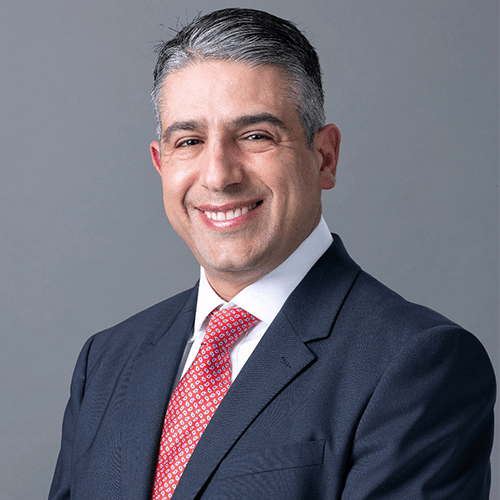
Houman Hemmati, MD, PhD - MediPrint Ophthalmics
MediPrint Ophthalmics is an innovative Ophthalmic company created to solve the challenges of current treatment of eye drops and surgery, such as non-compliance, low effectiveness, and high costs. These lead to poor outcomes and patients are in need of a better solution for this multibillion-dollar market. MediPrint Ophthalmics (MPO) has developed a globally patented 3-d printing platform for delivery of approved ophthalmic pharmaceuticals from contact lens, ensuring a safer and more efficient solution. MPO's lead product is in advanced stages of development for lowering of IOP in Glaucoma patients and its platform technology is designed to target a range of eye diseases such as glaucoma, dry eye, myopia, and allergy. Founded in 2011, inspired by the founder's personal experience with a relative's vision loss to glaucoma, MPO has raised $7.1M to date and has progressed its lead candidate of Bimatoprost eluting contact lens to a successful phase II human clinicals while establishing a scalable manufacturing process, a testament to our commitment and potential. We are launching Series B funding round to further advance our mission of transforming delivery of ophthalmic drugs to improve patients’ lives.
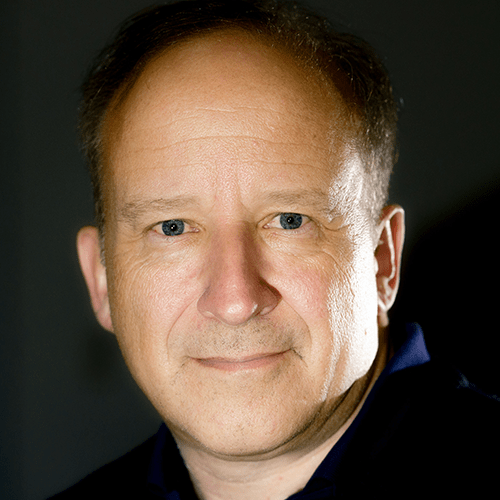
Franz Grus, MD, PhD, CEO - M-Lab GmbH
m-lab GmbH is a spin-off from the University of Mainz, Germany. We are developing and commercializing innovative point-of-care (POC) devices and personalized treatment approaches in Ophthalmology.
The initial product, a Glaucoma diagnostic platform, will provide early detection of Glaucoma, the most prevalent cause of blindness in the world today, by means of an affordable, easy-to-use, point-of-care test, yielding a Glaucoma Risk Score within a few minutes independent from specialized laboratories and ophthalmologists. We foresee a yearly test at below €20 for all people aged over 50 years.
The test is based on m-lab's innovative highly sensitive multiplexing lateral flow platform detecting disease specific antibody marker patterns in tear fluid with a reader and combined smartphone reader software for A.I. based disease scoring. This will be at present the only POC diagnostics for glaucoma independent from any additional instrumentation and which can be done everywhere by anybody. After final prototype optimization and licensing of the Glaucoma test system, we expect to launch the diagnostic platform within the next 2 years.
We are now looking for the next financial round (e.g. VC and M+A) for the next 2 years, strategic partners and licensing.
Board and Team:
Prof. Dr. Dr. F. Grus: Head of Translational and Experimental Ophthalmology at University of Mainz and CEO m-lab
Prof. Dr. Norbert Pfeiffer: Co-Founder of m-lab and CEO of University Medical Center of Mainz and member of Leopoldina
Dr. Dominik Beck: Board Member and Advisor to Managing Director, Experienced leader (CEO/COO/President/GM) in the medical device and pharma like Haag-Streit, Alcon, Iridex, DORC
Dr. Frank Seibel: Co-Founder and specialist in distribution and marketing of ophthamological products ISB (Investitions- und Strukturbank Rheinland-Pfalz)
Dr. Peter Taylor: Specialist in developing lateral flow assays for decades
Scientists: Julia Sann and Janis Heyne Bio-Informatics: Dominik Wolters (A.I. and reader app) Technicians and student
Advisory Board: Prof. Dr. Burkhard Dick (Dept. of Ophthalmology, University of Bochum, Germany) and Andreas Kühnel (CEO VSY, NL)

Robert Chang, CEO - Myra Vision
Myra Vision is developing a novel less invasive surgical glaucoma therapy that is designed to allow safe outflow control to achieve maximum reduction of intraocular pressure (IOP) while also reducing complexity and complication rates. Our proprietary Calibreye™ System is poised to transform glaucoma therapy and become the standard of care for all patients with our initial therapeutic focus on the underserved moderate to advanced patient population.
The Calibreye System intends to offer physicians unprecedented control with the ability to selectively titrate outflow (up or down) in a simple office visit. The Calibreye System aims to bring Titratable Glaucoma Therapy (TGT) to the therapeutic glaucoma armamentarium.
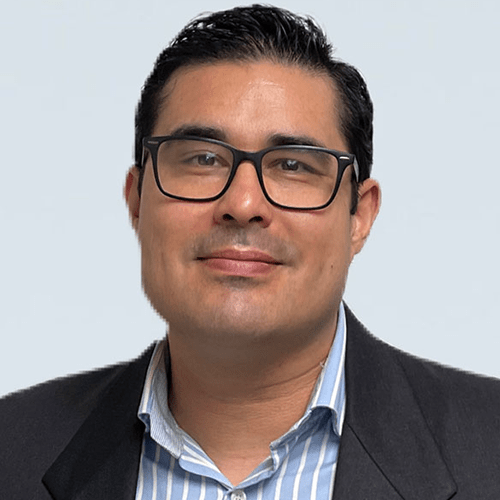
Jared Stephens, VP, Strategy & Business Development - Nanoscope Therapeutics
Nanoscope Therapeutics is developing gene-agnostic, sight-restoring optogenetic therapies for the millions of patients blinded by inherited retinal diseases, for which no cure exists. The company’s lead asset, MCO-010, recently reported topline results from the RESTORE Phase 2b multicenter, randomized, double-masked, sham-controlled clinical trial in the U.S. for retinitis pigmentosa (NCT04945772). The company has also recently completed their end-of-study visit for the Phase 2 STARLIGHT trial of MCO-010 therapy in Stargardt patients (NCT05417126). MCO-010 has received FDA fast track designations and FDA orphan drug designations for both retinitis pigmentosa and Stargardt. Preclinical assets include non-viral laser-delivered MCO-020 gene therapy for geographic atrophy.

Rich Small, CEO - Neurotech Pharmaceuticals
At Neurotech, we are focused on developing transformative therapies for chronic eye disease.
Our unique scientific approach and novel Encapsulated Cell Therapy platform promotes therapeutic advancements to treat a broad array of ocular diseases.
Through clinical research and studies, we are identifying new and effective methods of treatment, that benefit both the patient and physician.

Francesca Cordeiro, PhD, Founder & Chief Scientific Officer - Novai
Novai is an early-stage biotech company with a focus on ophthalmic diseases affecting the retina, founded by Professor Francesca Cordeiro, based on 20 years of research at UCL. Novai’s DARC (Detection of Apoptosing Retinal Cell) technology uses a patented fluorescent biologic which binds exclusively to stressed and apoptosing cells in the retina; standard retinal imaging equipment captures the resulting DARC spots, which are then counted and characterised by Novai’s AI suite to provide diagnosis and prognosis of blinding diseases such as Glaucoma and Age-related Macular Degeneration (AMD). Current standard of care detects early signs of vision loss; DARC detects changes at the cellular level when these changes are reversible and years before vision loss occurs. The embryological provenance of the brain and the eye means that DARC also has the potential to be deployed in screening and monitoring patients with neurodegenerative diseases such as Alzheimer’s and Parkinson’s diseases. Novai is unusual as an early-stage company as it is already revenue-generating, with biopharmaceutical companies using DARC to provide further insights to disease progression and to rapidly measure early treatment effect in their pre-clinical and clinical studies in a wide range of therapeutic areas. Novai is now raising funds in a Series A round to further develop DARC as a clinical diagnostic tool to inform treatment decisions and monitor therapy for the hundreds of millions of patients who suffer from Glaucoma and AMD worldwide.

Christopher White, Chief Business Officer - Ocular Therapeutix
Ocular Therapeutix, Inc. is a biopharmaceutical company focused on the formulation, development and commercialization of innovative therapies for diseases and conditions of the eye using its proprietary bioresorbable hydrogel-based formulation technology. Ocular Therapeutix’s first commercial drug product, DEXTENZA®, is an FDA-approved corticosteroid for the treatment of ocular inflammation and pain following ophthalmic surgery and ocular itching associated with allergic conjunctivitis. Ocular Therapeutix’s earlier stage development assets include: OTX-TKI (axitinib intravitreal implant), currently in a Phase 1 clinical trial for the treatment of diabetic retinopathy and a pivotal Phase 3 trial for wet AMD; OTX-TIC (travoprost intracameral implant), currently in a Phase 2 clinical trial for the treatment of primary open-angle glaucoma or ocular hypertension; and OTX-CSI (cyclosporine intracanalicular insert) for the chronic treatment of dry eye disease and OTX-DED (dexamethasone intracanalicular insert) for the short-term treatment of the signs and symptoms of dry eye disease, both of which have completed Phase 2 clinical trials.
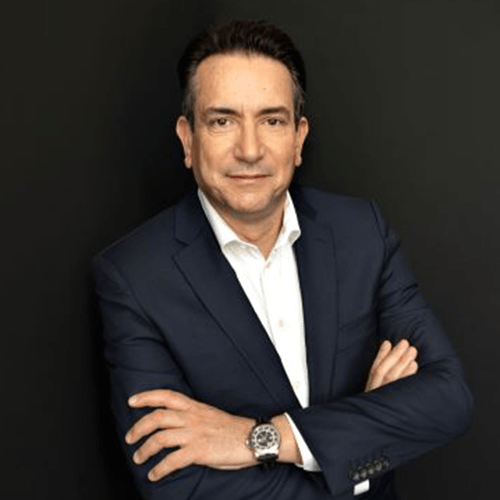
Riad Sherif, MD, CEO - Oculis
Oculis is a global biopharmaceutical company purposefully driven to save sight and improve eye care. Oculis’ highly differentiated clinical-stage pipeline includes: OCS-01, a topical candidate in Phase 3 for diabetic macular edema and inflammation and pain following ocular surgery; OCS-02, a topical biologic candidate in Phase 2b for dry eye disease and uveitis; and OCS-05, a disease modifying candidate for acute optic neuritis and other neuro-ophthalmic disorders. Headquartered in Switzerland and with operations in the US, Oculis’ goal is to deliver life-changing eye treatments to patients worldwide. The company is led by an experienced management team and supported by leading international healthcare investors.

George Magrath, MD, CEO - Ocuphire
Ocuphire Pharma is a clinical-stage ophthalmic biopharmaceutical company focused on developing and commercializing therapies for the treatment of refractive and retinal eye disorders.
Nyxol is being developed for several indications including pharmacologically-induced mydriasis, presbyopia, and dim light or night vision disturbances. Nyxol is an investigational 505(b)(2) product candidate that has been studied in over 650 subjects across 12 completed Phase 1, 2, and 3 trials.
Our second product candidate, APX3330, is a twice-a-day oral tablet designed to inhibit angiogenesis and inflammation pathways relevant to retinal and choroidal vascular diseases, such as diabetic retinopathy and diabetic macular edema.
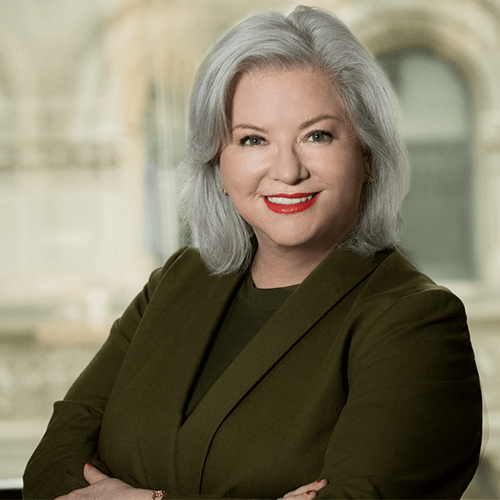
Kerrie Brady, President & CEO - OcuTerra Therapeutics
OcuTerra Therapeutics, Inc. is a clinical stage company developing innovative drugs to treat ophthalmic diseases for which the current standard of care does not prevent or control the progression of disease.
Our initial therapeutic, OTT166, administered as an eye drop containing a novel RGD-binding integrin inhibitor, is in Phase 2 of clinical development to enable earlier intervention for diabetic retinopathy, a chronic, progressive disease that is one of the leading causes of vision loss in the United States. Our goal is to bring transformative treatments to clinicians and their patients who are consigned to “watch and wait” as disease progresses, ultimately requiring medically intensive and invasive therapy.
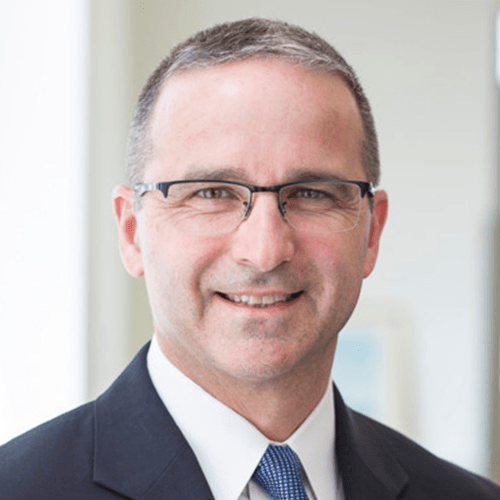
David Esposito, President & CEO - ONL Therapeutics
ONL Therapeutics (ONL) is a clinical-stage biopharmaceutical company committed to developing first-in-class therapeutics to protect and improve the vision of patients with retinal disease. By advancing a breakthrough technology designed to protect key retinal cells from Fas-mediated cell death, ONL is pioneering a new approach to preserving vision. ONL is developing a platform of products for use in a wide range of blinding diseases, including retinal detachment, glaucoma, AMD and IRD.

Ben Yerxa, PhD, CEO - Opus Genetics
Opus Genetics is a clinical-stage gene therapy company for inherited retinal diseases with a unique model and purpose. Backed by Foundation Fighting Blindness’ venture arm, the RD Fund, Opus combines unparalleled insight and commitment to patient need with wholly owned programs in numerous orphan retinal diseases. Its AAV-based gene therapy portfolio tackles some of the most neglected forms of inherited blindness while creating novel orphan manufacturing scale and efficiencies. Based in Research Triangle Park, N.C., the company leverages knowledge of the best science and the expertise of pioneers in ocular gene therapy to transparently drive transformative treatments to patients.

Peter Francis, MD, Chief Medical & Scientific Officer - Ray Therapeutics
Ray Therapeutics Inc (RayTx) is a late-stage preclinical Bay Area biotechnology company pioneering the first-to-market precision optogenetic therapy for vision restoration that is highly active in ambient lighting (and will not require light-enhancing goggles). Our studies have shown for the first time that our proprietary ChRown optogenetic protein can restore high levels of visual acuity, contrast sensitivity and visual field.
RayTx lead asset, RTx-015, is expected to address the huge unmet medical in people suffering from many forms of retinal blindness (independent of the underlying genetic cause), including those with advanced age-related macular degeneration. RayTx has partnered with a world-leading AAV gene therapy manufacturer is utilizing their proprietary commercial manufacturing process and analytics to maximally de-risk clinical development. RayTx anticipates clinical trials will begin by the end of 2023 in our initial indication, retinitis pigmentosa.
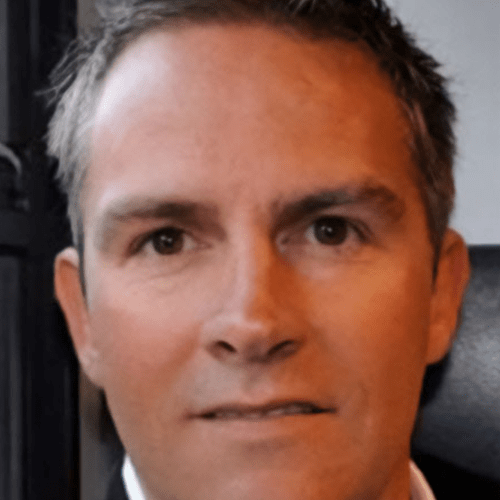
Patrick Ruane, PhD, Chief Operating Officer - Re-Vana Therapeutics
Re-Vana Therapeutics is a pioneering ocular drug delivery and therapeutic company focused on developing the world’s first ocular sustained-release biologics to
be delivered in the office. Our innovative platform technologies, EyeLief®, EyeLief SD™, and OcuLief®, enable the efficient delivery of biologics and small molecules, expanding global treatment opportunities. With a multi-billion-dollar market segment,
our non-surgical approach offers a significant advantage over traditional treatments.
We have two parallel strategies in place. Internal sustained release biologic development and external strategic collaborations with major pharma companies.
After raising $3.25 million in a pre-Series A round in 2020, Re-Vana successfully closed a Series A round worth $11.9 million in November 2022. Leading US ophthalmic-focused VC's, Visionary Ventures, ExSight Ventures, and InFocus Capital, as well as UK investors and a corporate investor, participated
in this round.

Raj Agrawal, MD, Vice President For Clinical Development And Ophthalmology Lead - Rezolute Bio
Rezolute is a clinical stage biopharmaceutical company dedicated to developing transformative therapies for patients suffering from debilitating metabolic diseases.
Diabetic retinopathy (DR) affects approximately one third of adults with diabetes and is the leading cause of vision loss in the working age population. Diabetic Macular Edema (DME) is a severe vision-threatening complication of DR characterized by swelling of the retina and thickening of the macula, the part of the eye that is responsible for high-resolution vision. Anti-vascular growth factor (anti-VEGF) injections into the eye are the current standard of care for DME, requiring continued administration over long periods of time to preserve vision. Due to their invasive route of administration and occasional serious side effects, there is a tendency to delay treatment until later in the disease course, and long-term compliance with eye injection regimens can be difficult for patients. Coupled with inadequate responsiveness in some patients, this leads to overall undertreatment and suboptimal vision outcomes in DME patients.
The contact-activation kallikrein-kinin system promotes increased vascular permeability and inflammation via key downstream mediators, including bradykinin, and activation of the intrinsic pathway of coagulation. Pathophysiologic upregulation of this system has been linked to a variety of diseases which are characterized by vascular dysfunction, including diabetic macular edema.
RZ402 is a small molecule selective and potent plasma kallikrein inhibitor (PKI) being developed as a potential oral therapy for the chronic treatment of diabetic macular edema (DME). By inhibiting the formation of kallikrein, RZ402 is designed to block downstream bradykinin production and the pro-inflammatory, pro-coagulant, and fluid-leakage contact-activation cascade.
RZ402 has been shown to reduce and prevent retinal vascular leakage in animal models by 80-90%.

Jing-Feng Huang, Founder & CEO - Seinda Biomedical
Seinda is a specialized ophthalmic therapeutics and ocular point-of-care diagnostics company. Our mission is to bring precision medicine to eye care. We focus on research and development of innovative biomarker tests and therapeutics for dry eye and other ocular conditions. Seinda has two diagnostic products commercialized in China and one new dry eye treatment finishing phase II clinical trial in US.

Tu Diep, Chief Development Officer - Skye Bioscience
Skye is focused on unlocking the pharmaceutical potential of the endocannabinoid system, initially through modulation of the CB1 receptor, to treat diseases with inflammatory, fibrotic, and metabolic processes. Backed by leading biotechnology venture investors, Skye's strategy leverages biologic targets with substantial human proof of mechanism for the development of first- and only-in-class therapeutics with significant clinical and commercial differentiation. SBI-100 Ophthalmic Emulsion is a CB1 agonist that has in preclinical studies compared favorably to commercialized glaucoma drugs in the extent and duration of IOP-lowering. Skye is finalizing its Phase 2a preparations and will begin enrolling in early Q4 2023, with interim data expected in Q1 2024.

Reenie McCarthey, CEO - Stealth Biotherapeutics
Stealth BioTherapeutics is an innovative biopharmaceutical company developing therapies to treat mitochondrial dysfunction associated with genetic mitochondrial diseases and common diseases of aging. Our team works with patients and advocacy organizations to better understand their journey with mitochondrial disease and raise awareness of the unmet need our programs seek to address.
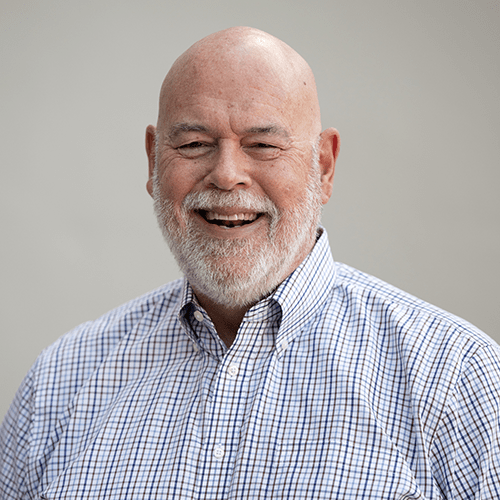
Eric Schlumpf, CEO - Stuart Therapeutics
Stuart Therapeutics is a clinical stage company developing therapeutics for ophthalmic indications based on the company's platform technology, the PolyCol family of collagen mimetic peptides, or CMPs. This first in class therapeutic approach targets damaged extracellular matrix collagen for repair, restoring both structure and healthy cell signaling. The mechanism of action has a pronounced effect on epithelial and neuronal cell health, and has been shown to reduce inflammation in a variety of disease models. The company is developing CMPs to treat diseases of the anterior and posterior segment, as well as certain refractory indications.

Nick Ruth, Chief Commercial Officer - Sydnexis
Myopia is the most common eye disease in children and has experienced a dramatic increase in prevalence over the last 30 years. Once considered a benign refractive condition, even at low levels, myopia is now associated with many serious ophthalmic co-morbidities.
With greater severity of myopia, the higher the risk of these ophthalmic co-morbidities later in life. Sydnexis was founded with the goal of developing a proprietary, stable, low-dose atropine eyedrop to treat myopia progression in children and minimize the risk ocular co-morbidities. Formulation Matters! And at Sydnexis, we have focused on developing a premium low-dose atropine formulation.
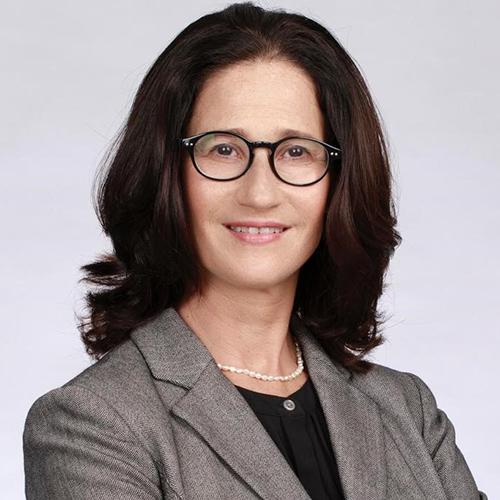
Daphne Haim-Langford, PhD, CEO - Tarsier Pharma
Tarsier® Pharma is a late clinical-stage company dedicated to the development and commercialization of a breakthrough therapeutic approach for better and safer treatment of autoimmune and inflammatory ocular diseases. The TRS Platform Technology is a bio-inspired immunomodulator designed to treat blinding inflammatory ocular diseases, and is currently being developed as both eye drops and intravitreal injections.
Ocular inflammations are a group of diseases affecting the front and back of the eye. Non-infectious anterior and posterior uveitis are the most known ocular inflammatory diseases. However, ocular inflammation is a critical underlying mechanism in the pathology of other inflammatory eye diseases, such as non-evaporative dry eye, diabetic macular edema (DME), and dry age-related macular degeneration (AMD). Hundreds of millions of people in all age groups are suffering from ocular inflammatory diseases worldwide, conditions that pose severe risks of vision loss and blindness.
With a leadership comprised of a global team of experienced, motivated, and dedicated professionals, and backed by investors who are focused on strategic investments in ophthalmology, we plan to leverage our new immunomodulatory approach to disrupt how ocular inflammatory diseases are being treated.
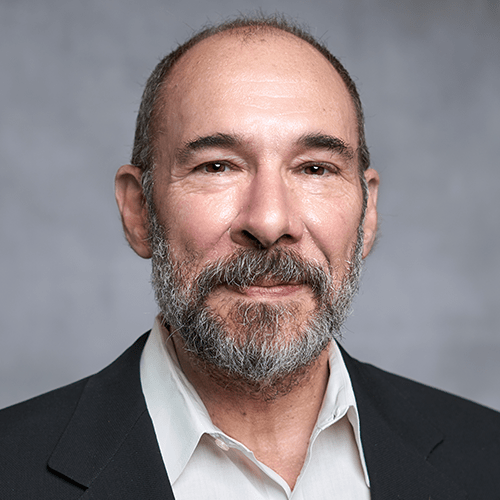
David Eveleth, PhD, Founder & CEO - Trefoil Therapeutics
Trefoil Therapeutics is a clinical stage company focused on the application of a novel engineered FGF-1 compound (TTHX1114) in underserved ophthalmic disease areas. The lead indication is the treatment of corneal edema associated with endothelial dysfunction. Trefoil also has a topical formulation in development for for the treatment of epithelial dysfunction associated with Sjogren’s Syndrome. Trefoil has completed a phase 2 clinical study for the intracameral injectable formulation and a phase 1 safety study for the topical formulation.

Graeme Martin, PhD - Vantage Biosciences
Vantage Biosciences is targeting the root cause of vision loss resulting from diabetes – the neuroinflammatory insult that precedes microangiopathy and leads to degeneration of the neurovascular unit of the eye.
Our orally available small molecule inhibitor has a dual mechanism of action, targeting leukocyte trafficking and pro-inflammatory products of local amine oxidation.
VX-01 is suitable for daily oral chronic dosing to ensure that intraocular concentrations of the drug achieve profound, persistent inhibition of AOC-3 in the neurovascular unit. Previous clinical studies using AOC-3 inhibitors to treat diabetic eye diseases (1,2) were confounded using drug doses that, although effective against soluble AOC-3 circulating in plasma, were insufficient to cross the blood-retina barrier and block AOC-3 in the eye.

Shawn O'Neil, CCO - ViaLase
ViaLase, Inc. is a globally-minded, venture capital-backed, clinical stage medical technology company located in Aliso Viejo, CA. ViaLase is focused on disrupting the conventional glaucoma treatment paradigm with the introduction of a truly noninvasive image-guided femtosecond laser treatment that enhances glaucoma patient care. With a leadership team that has vast experience developing, designing, manufacturing, and commercializing the first femtosecond lasers for ophthalmic surgery for refractive and cataract patients, ViaLase is now bringing that expertise and innovation to glaucoma patients. ViaLase believes in collaborating closely with health care providers, payers, societies, and patients to inform our product development and commercial activities with the goal of bringing this revolutionary treatment to glaucoma patients across the globe.

Ben Bergo, CEO - Visus Therapeutics
With offices in Seattle, Wash., and Irvine, Calif., Visus Therapeutics is a clinical-stage biopharmaceutical company focused on developing multi-targeted ophthalmic therapeutics for the front and back of the eye. The company is developing novel, pupil-modulating therapeutics designed to correct the loss of near vision associated with presbyopia. In parallel, Visus Therapeutics is advancing its pipeline of early-stage ophthalmic drug candidates engineered to preserve and restore visual function associated with the leading causes of vision loss including cataract and presbyopia, ocular surface and corneal disease, glaucoma, and age-related macular degeneration.


